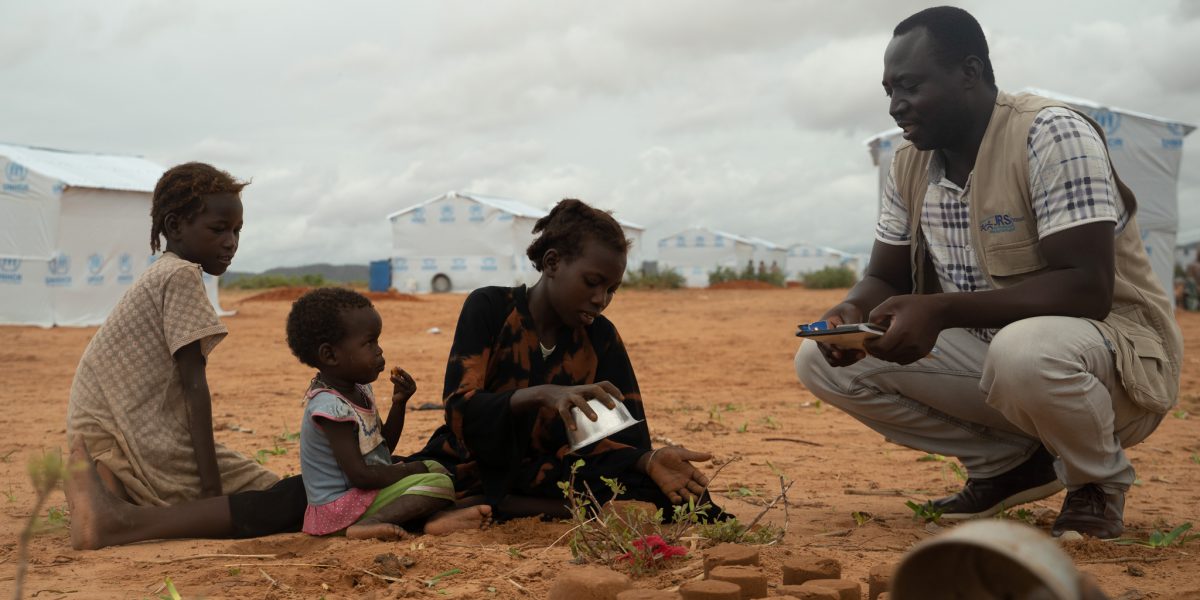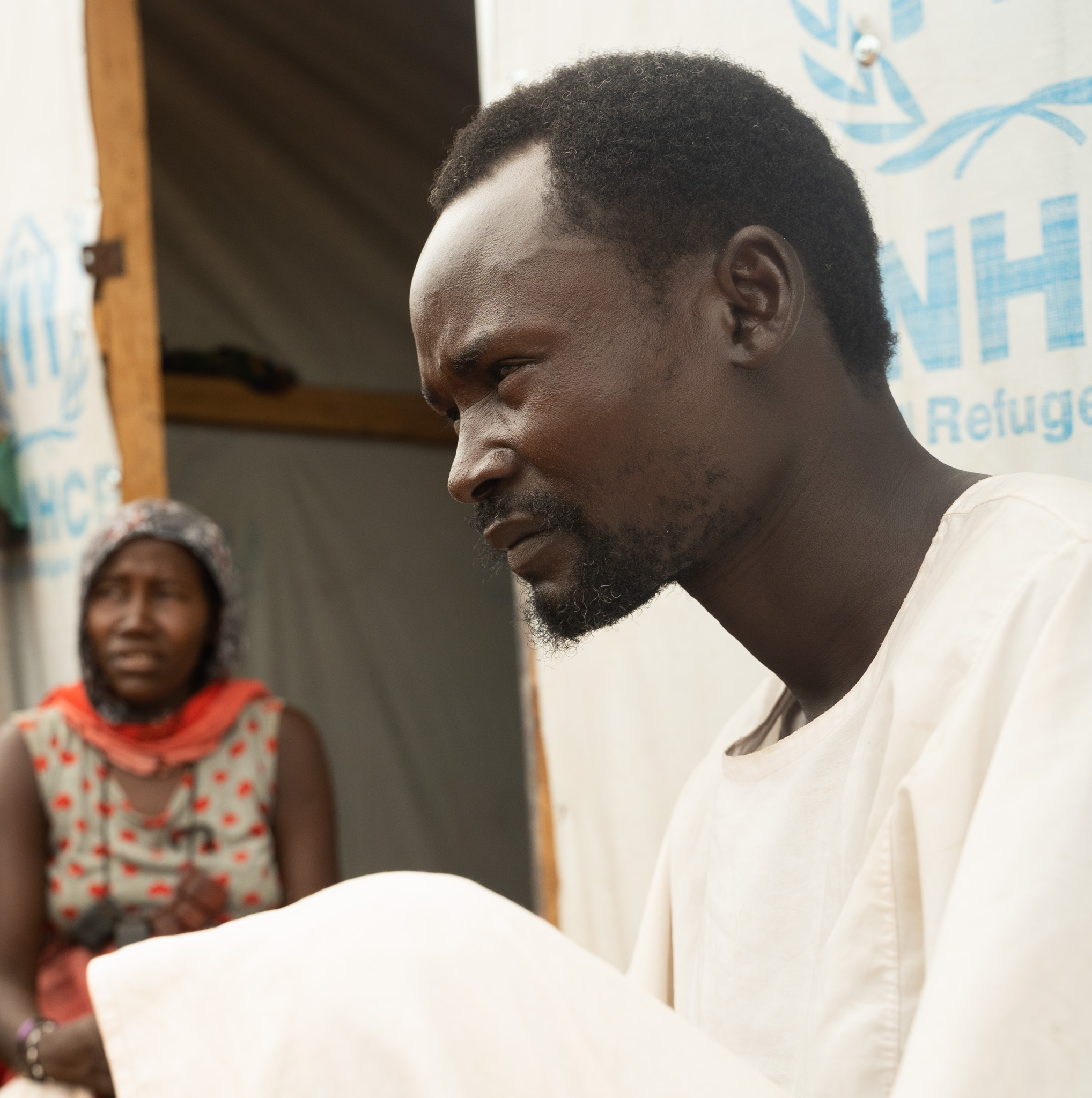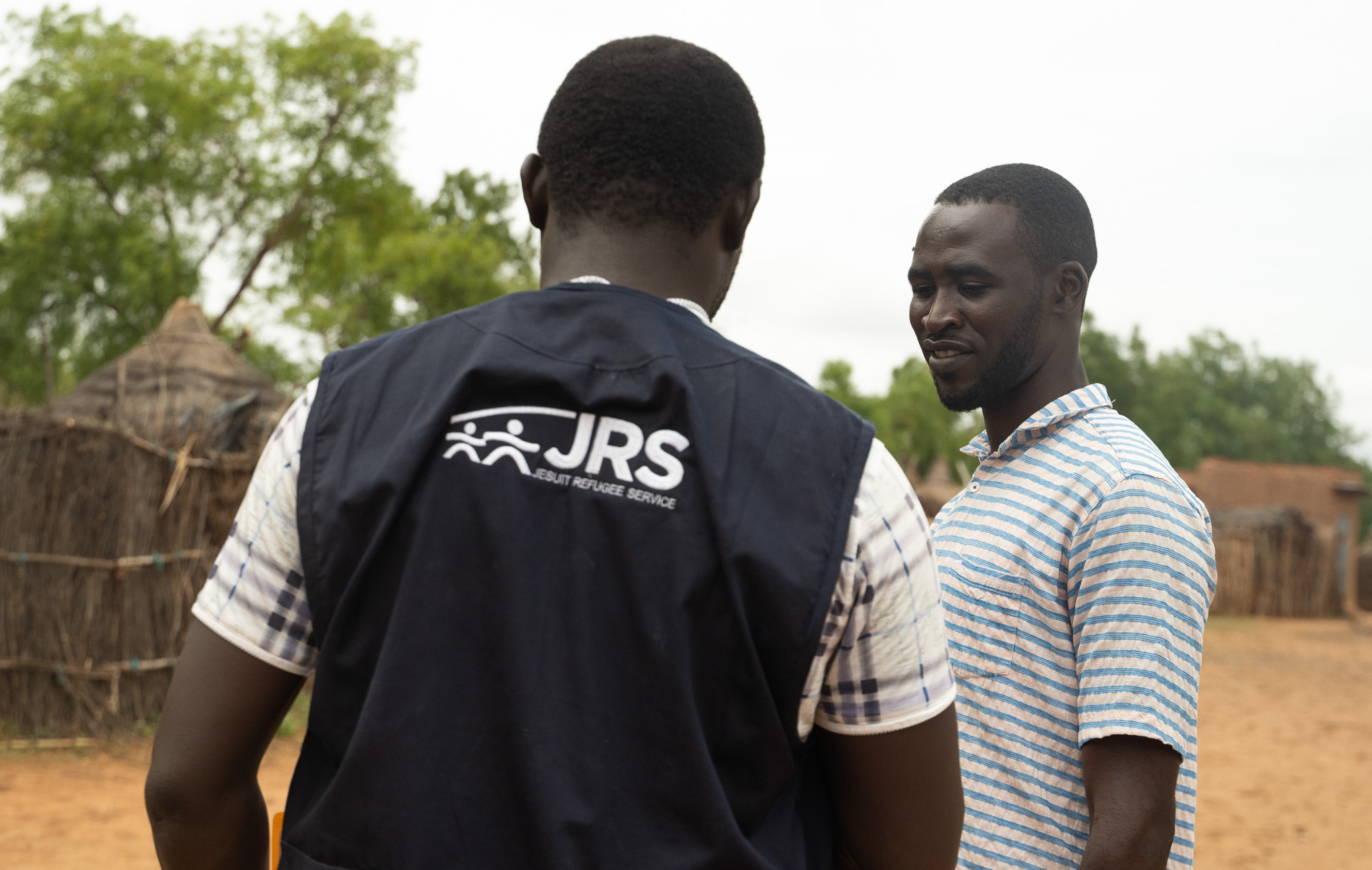JRS Chad: Protecting Education of Sudanese Refugees
05 July 2023|Natalia Sepulveda Reina

Since the escalation of the conflict in Sudan in April, thousands of people continue to flee the country in search of safety. Of these, as June 8th, 115,980 have found refuge in neighboring Chad, mostly women and children. 14,636 have been relocated to different parts of the country, while others are still waiting in border towns. Relocation is difficult due to the intense rainy season, which contributes to rivers that make crossing difficult and very dangerous. The infiltration of Chadians among the refugees is yet another obstacle that delayed the relocation process.

This was the case of Isaac Ismael and his family, who spent a month at the border before being relocated to Djabal Refugee Camp, in the East of the country. Isaac was selling in the market at the beginning of the conflict. He heard a loud sound of gunshots, smoke, people running… “I quickly went home, took my daughters and together with my wife we abandoned all our belongings. When we were in Amrresa we also felt insecure, now that we are in Goz Beida, we feel fine, but my daughters got sick on the way and when we managed to take them to the hospital, we had no money to pay for the consultation,” he laments. “When my father and father-in-law were trying to flee, they were killed in front of me. We don’t care where they send us, we can’t go back to Sudan, and we can’t go through the horror we have experienced on the way. Here in the refugee camp, we are safe, but we don’t have the resources to work or start a new life, we need help,” said Isaac. Sadia Ahmat made the same journey alone with her nine children, “We fled the hostilities of war.I want peace for my children; my wish is that they can go to school in Chad.”
Our response in Chad

JRS Chad is part of the inter-agency response in the regions of Ouaddai, Sila, and Wadi Fira. JRS’s efforts are focused on protecting children, education, identifying school-age children at reception sites and qualified teachers, as well as distributing school materials, and raising awareness on the importance of access to education. JRS is also advocating with local Chadian authorities to ensure refugee children are accepted into official national schools. It was in this advocacy process that schools in the camps were recognized and formalized as public schools.
“There are many children in small classrooms,” says Saleh, Headmaster of the high school in Djabal refugee camp. The main obstacles for refugee children to access education are the scarcity of resources. “Refugees from Sudan have lost a large part of the school year due to the outbreak of the war. We are working to make up for the time lost in their education.”
With children, we work to create playful moments.We encourage them to play so that in these difficult times they can forget and heal the wounds of what they have lived through, and thanks to these games they get to know their new classmates.
Ahmad Adam is a Sudanese teacher in Djabal camp, a great support for the children because he himself experienced the same in 2004. JRS supported his education, “I tell them my own story, I also fled Sudan and now I am a teacher here. I try to explain them that here they can feel safe, calm, and that little by little they will forget the horrors they have been through. At school we try to build a better future for them.”
The situation of the people who are arriving is extremely vulnerable, the NGOs do not have sufficient capacity to cover all the needs for these people fleeing the war. We need urgent support to give a dignified and solid response to these people.



